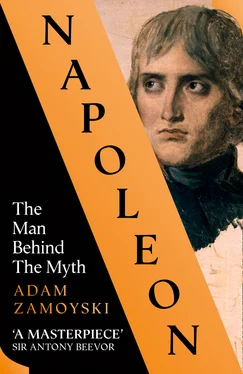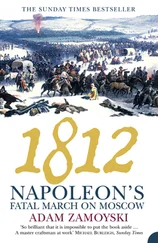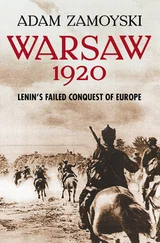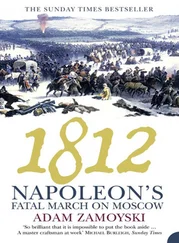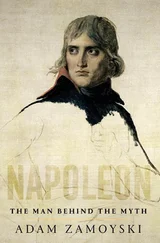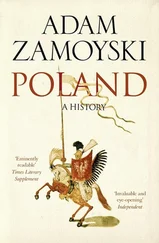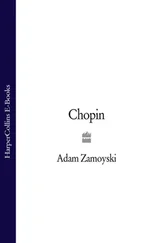1 ...8 9 10 12 13 14 ...48 In a letter to his father of September 1784, four and a half years after arriving at Brienne, the fifteen-year-old Napoleone had asked him to send a copy of Boswell’s book and any other historical works on Corsica he could find. He had left his homeland at the age of nine, at which time he can have known little of its history or circumstances. His reading at Brienne would have exposed him to the current intellectual and emotional trends, which included the cult of the patrie , the motherland which demanded to be served and died for. Paoli’s Corsican project chimed with this, and his fate appealed to the growing fashion for glorifying victimhood and lost causes. During his last years at Brienne Napoleone went through a phase of what he called ‘ grande sensibilité ’, and he embraced this one, casting himself as a Corsican patriot and an ardent worshipper of Paoli. The motivation may have been partly the need for a modern hero to emulate. The study of Plutarch had inspired a cult of heroes in late-eighteenth-century France, which was in matters of taste entering the age of neo-classicism. Alexander the Great, Caesar, Brutus, Cicero and others were the lode-stars of Napoleone’s generation. A little wishful thinking could cast Paoli in the same mould. Napoleone’s new-found emotional association with Corsica may also have had something to do with his sense of social inferiority, with a desire to claim for himself a status distinct from and morally superior to that of his fellow cadets with their noble pretensions, that of the persecuted patriot. It was certainly some kind of attempt to capture the moral high ground. But it sat uneasily with his family’s having hitched its fortunes to the French monarchy, let alone his aim of making a career in the service of the King of France. The ambiguities of his situation, both national and social, were inescapable, and made no less real by his father’s increasingly desperate efforts to position his family.21
Carlo was not well. He had taken Joseph away from Autun and back to Corsica, hoping the boy would take a law degree and assume the responsibilities of head of the family. But Joseph persisted in his desire to become an artillery officer. After undergoing a short cure and assisting at the birth of his youngest son Jérôme, at the end of 1784 Carlo left the island with Joseph, meaning to take him to Brienne and then go on to Paris to petition for a bursary on his behalf, as well as press his own case for the award of the Milleli estate. The sea crossing was so rough they were nearly shipwrecked, and by the time they made land, at Saint-Tropez, Carlo was in a bad way. They travelled to Aix, where they met up with Joseph Fesch and decided to consult doctors at the medical school of Montpellier. There they found a close friend of Letizia from Corsica, now married to a tax official by the name of Permon, who helped Joseph and Fesch look after the thirty-nine-year-old Carlo. But he was sinking fast, and the doctors could do nothing for him. The end came on 24 February 1785: the post-mortem suggests either stomach cancer or a perforated ulcer as the cause of death.22
Napoleone had never known his father well. Carlo was away for long spells during his childhood and they only saw each other once in France, when Carlo came to drop off Lucien at Brienne (and possibly when Letizia visited him). That short visit had not made a favourable impression on the boy, and frequent allusions to his paternity made him wonder whether Carlo really was his father. When, as was customary in such circumstances at the École Militaire, his confessor came to console him, Napoleone brushed him off, saying he had enough strength of character to cope with his loss without spiritual consolation. ‘There would be no point in expressing to you how much I have been affected by the misfortune which has befallen us,’ he wrote to his great-uncle Luciano. ‘We have lost in him a father, and God knows what a father, with his tenderness and his attachment.’ The letter dwells on the cruelty of Carlo’s having had to die away from his home and his family, and ends by dutifully imploring Luciano to take the place of the father he has lost.23
His father’s death might have come as something of a liberation in one sense: the socially embarrassing and pushy Carlo, with his limited aspirations, fitted ill with Plutarch’s heroes who filled the boy’s imagination, and his obsequious attachment to France even less with the idealised vision of Paoli’s struggle for the liberation of the Corsican nation which had become central to his view of himself. In Napoleone’s imagination, Paoli was now not only a modern-day Plutarchian hero, a role model to be emulated, but also a spiritual father figure.
His obsession with Paoli was mocked by his fellow cadets, as a surviving caricature attests. But his pose as a representative of the heroic nation wronged by France was psychologically convenient for confronting the superior airs of his aristocratic comrades: he could parry their arrogance with self-righteous contempt. Such sparring should not be made too much of, and he only seems to have had one real hate in the school, a cadet by the name of Le Picard de Phélippeaux.24
Napoleone’s friend Laugier de Bellecour had come to the École Militaire from Brienne with him. Le Lieur de Ville sur Arce had left to join his regiment just before Napoleone arrived, but before leaving he had asked his friend Alexandre des Mazis to look out for him, warning him that he was prickly and difficult. Their first meeting bore this out, but the two soon became close. Napoleone found in him ‘someone who understood him, liked him, and to whom he could without constraint uncover his thoughts’, in the words of des Mazis.25
Napoleone hated drill, and his mind would drift, with the result that his was always the last musket to be shouldered or lowered, despite des Mazis nudging him, incurring a sharp ‘Monsieur de Buonaparte, wake up!’ from the drill-master, at whom on one occasion Napoleone threw his musket in a rage. As a result he was made to perform his drill under the supervision of des Mazis. He loved fencing, but was a dangerous sparring partner. He was aggressive and, if touched, would go for his adversary with such fury that he laid himself open to further touches, which made him all the angrier. He often broke his foil, and sometimes the fencing-master would have to separate the combatants.26
The two boys shared an interest in mathematics, and des Mazis admired the way his friend relished the challenge of a mathematical problem. ‘He would not give up until he had overcome every difficulty,’ he recalled. They were taught by Le Paute d’Agelet, a mathematician and astronomer who had circumnavigated the globe with Bougainville, and who enthralled them with his accounts, reviving Napoleone’s naval aspirations. In 1785 he was preparing to set off on a voyage of discovery with the explorer Jean François de La Pérouse, and along with several others Napoleone applied to accompany the expedition. Only one was chosen, and it was not him. The voyage ended in disaster in the South Pacific, and nobody survived.27
As well as mathematics, Napoleone showed a great curiosity about geography and history, and read widely in both. Although he loved literature, he seemed to have little interest in improving his French, and the exasperated French teacher eventually told him not to bother attending his classes. He also showed what one teacher described as ‘an invincible repugnance’ for learning German. But he was generally popular with the teachers, who were impressed by ‘the persistence with which he argued his points’.28
He struck teachers and cadets alike as serious-minded, and was described by one of them as ‘preferring study to every kind of amusement’, interested in literature and ideas, ‘uncommunicative, fond of solitude, capricious, arrogant, extremely self-centred’, ‘having high self-esteem’ and a good deal of ambition. Much of the time he appeared to be in a world of his own, pacing up and down, lost in thought, sometimes gesticulating or laughing to himself.29
Читать дальше
